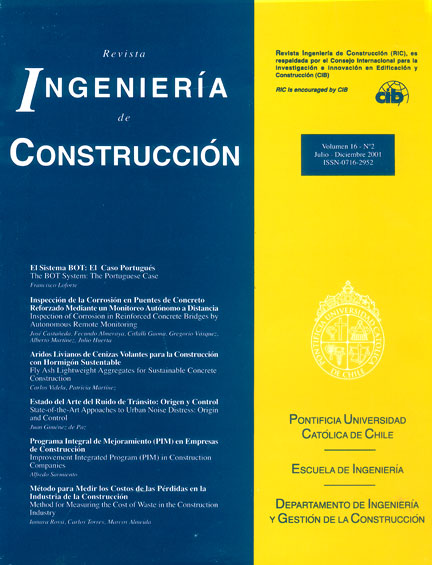FLY ASH LIGHTWEIGHT AGGREGATES FOR SUSTAINABLE CONCRETE CONSTRUCTION
Keywords:
lightweight aggregates, fly ash, binders, cold bonding, sustainabilityAbstract
Aggregates are the main volumetric component of concrete occupying between 65% to 75% of the total volume. The extraction of natural aggregates has caused world-wide erosion problems and generated a deficit of these materials. To face those problems different alternatives have been proposed: recycling technologies and production of artificial aggregates. The use of fly ash allows the production of artificial aggregates for concrete. This solution also offer the possibility of using the industrial byproducts of thermoelectric plants allowing to solve the disposal problems and the associated cost that these industries have had per decades. Both problems, the shortage of natural aggregates and the use of industrial waste, are highly related to the necessity of Sustainable Development, one of the main concerns at the beginning of the XXI century. In this research class F fly ash was used, agglomerated by an agitation process and hardened by “cold bonding”. Major variables of the production process were the use of different types and contents of binders and cold bonding conditions. Results indicate that the best solution, considering aggregates physical and mechanical properties and economic and practical criterions, corresponds to aggregates manufactured with 5% wt of Portland Pozzolan cement subjected toout-door exposure hardening.


